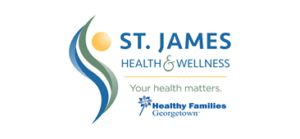Because home visiting programs are needed now more than ever, Children’s Trust continues to work with its partners across South Carolina to deliver program services to children and families during the coronavirus pandemic. While social distancing has limited much of the in-person contact usually employed by our prevention programs, our partners have skillfully adapted their work to ensure children and families receive the support and resources they need to stay strong in these trying times. Healthy Families Georgetown (HFG), a coastal-based home visiting model that’s part of St. James Health and Wellness, is a Maternal, Infant and Early Childhood Home Visiting (MIECHV) program grantee. Othelia Britton, HFG’s family support specialist manager, answered questions about the organization’s efforts to keep its commitment to provide services to mothers and their young children despite the obstacles. Cathy Ramage, Children’s Trust director of home visiting, provides support for HFG.

How was your organization able to keep serving families during these difficult times?
“Healthy Families Georgetown overcame many challenges in delivering services to families during this critical time of the COVID-19 pandemic. Some of our challenges include — but are not limited to — the heightened anxiety levels in our families. With children being out of school, day care closings, potential threat of employment closure, and the possibility of contracting the virus, HFG found by providing social support, virtual communication (like phones or video chats) and mental health support were the key to overcoming these challenges in delivering services to our families.”
What moments stand out the most to you?
“For the staff, it was the innovative strategies used by the team members in supporting families. We initiated and organized creative ways in providing drop-off services, (promoting) family self-care, engaging families and providing opportunities for enrollment.
“For the families, one family conducted a virtual puppet show on the porch for their home-visit activity. The family support worker was able to drive up to the family’s home to view the puppet show, which was very decorative, amusing and funny! The family had spent time making the props, as well as practicing and and imitating voices. She stated that there were talents evident in the family that she did know existed. Having this experience enlightened her on how to incorporate creative ways that involved family participation.
“During the pandemic, our CAP (community action partners) team supported and enhanced our partnership through virtual teaching and learning forums to support our families. They provided regular updates on the COVID epidemic, as well as other community-related services and events like food pantries and child care.”

Othelia Britton
What did you learn about your organization and the families that can be applied moving forward?
“I found both to be very resilient and flexible! In the face of this crisis, we have experience in supporting and learning how to be more adaptable. We’ll be better-equipped to respond when faced with a life crisis in the future. Building a team between organization and family that supports and empowers each other will help in impacting future families.”
How did the families adapt to the new way of connecting with your organization?
“We believe that some families and children were open in trying news ways to receiving services. However, some families struggled with not having the in-person visits that give a personal touch and connection. As we know, face-to-face interaction and socialization leads to a sense of community, which leads to a stronger relationship.”
Looking to the future, what do you think the impact on family support services will be as a result of this pandemic?
“There will be an impact on family support services. For many families, this could be just making changes in how they ordinarily live their lives, from financial hardships, food insecurities, adequate child care, mental health issues to social distancing.”





